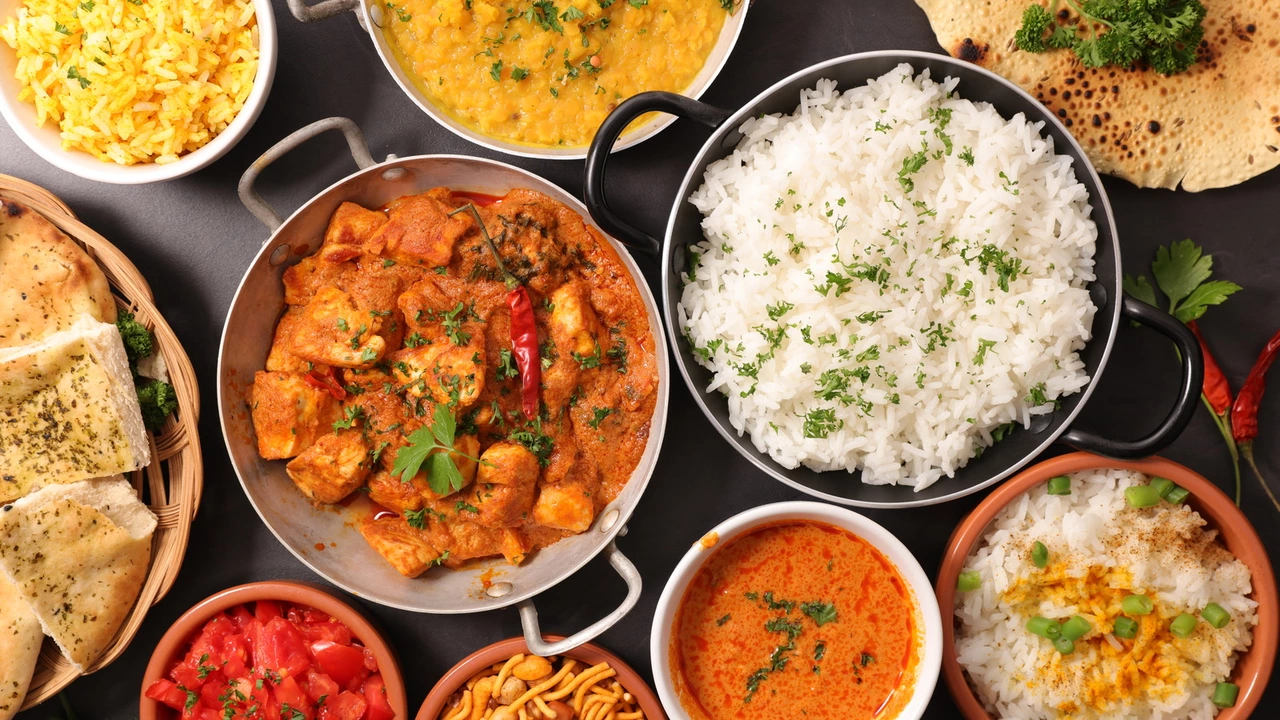
The Intricacies of Indian Cuisine
If there's one thing that stands out about Indian food, it's its distinctive array of flavors. Indian cuisine prides itself on a plethora of dishes prepared with a myriad of spices and herbs. These meals vary from region to region, showcasing diversity and depth within the culture itself. Each dish tells a story, reflecting a historical influence or regional tradition.
There's no shortage of spices in Indian kitchens! It's like walking into an aromatic wonderland with the hint of turmeric, the tanginess of coriander, the sharpness of cumin, the bite of pepper, and so much more. Everything in Indian cuisine has a purpose, an underlying reasoning – not just for the taste, but also for health benefits. Is it any wonder that the world ends up enchanted by this culinary marvel called Indian cuisine?
The Versatility of Western Cuisine
On the other hand, we've got Western food - a collective term for diverse culinary traditions of Europe, the Americas, and other Western countries. The concept of 'less is more' is impressively mirrored in Western dishes. The simplicity of their dishes lets individual ingredients shine – a single piece of well-cooked steak can be just as impressive as a dish with twenty ingredients!
Western cooking methods using butter, olive oil, and herbs such as thyme, rosemary, and oregano create dishes that are delicately fragrant and satisfying. Imagine savoring a juicy burger or a slice of gourmet pizza. Just as in Indian cooking, every Western dish has its distinctive local flavors derived from the environment, climate, and local produce.
The Spicy Exploration: Indian vs. Western
Now, if you are asking me which cuisine tastes better, Indian or Western, then, boy, you've got yourself into a pickle! Being an Indian living in Australia, I've had the opportunity to taste the best of both worlds.
Put head-to-head, the spice-rich Indian dishes are indeed an explosion of flavors. Each bite can be an adventure of sorts, exploring different layers as your taste buds unravel the exotic spice-blend of any dish. The Western dishes, on the other hand, have a subtler palette that allows you to enjoy highlighted, raw, or lightly seasoned tastes.
Comfort Food Delights
I often find myself in a culinary conundrum when it comes to choosing between Indian and Western comfort foods. Who can resist a bowl of creamy mashed potatoes or mac and cheese? However, Indian comfort food like rajma-chawal (kidney beans and rice) or daal-chawal (lentils and rice) has a unique comfort of home. The difficulty of this decision is very real.
Health Benefits: Indian vs. Western
Most people perceive Western food as unhealthy, but this is a deceptive stereotype. It depends entirely on how the food is prepared and what ingredients are used. A cheeseburger with a side of fries might not score high on the health scale, but a salad packed with fresh, crunchy veggies can amaze you.
Indian food, on the other hand, is seen as healthy due to traditional methods and ingredients. But an overuse of oil and salt can make even a 'healthy' curry dangerously unhealthy. Therefore, it's not right to generalize that one cuisine is healthier than the other.
Breakfast Battle: Western vs Indian
Wake up to the smell of pancakes or samosas? A difficult pick, isn't it? Breakfast, being the most important meal, comes with delightful offerings in both cuisines. From fluffy omelets, crunchy toasts to stuffed paranthas, spicy poha, both Indian and Western cultures present a delightful array of tasteful beginnings.
Personal Story: The Potluck Detente
At a risk of 40%, I'll share a personal story related to the topic at hand. My Indian friend and I once hosted a potluck dinner where we set out to solve the great culinary debate - Indian vs. Western food. I prepared Indian dishes, and he crafted Western recipes. By the end of the evening, we realized that every plate was wiped clean!
The conclusion? It wasn't about which cuisine was better; it was about the shared joy and togetherness that food, regardless of its origin, managed to bring. And, perhaps, that's the ultimate measure of a cuisine's taste and appeal.

Write a comment